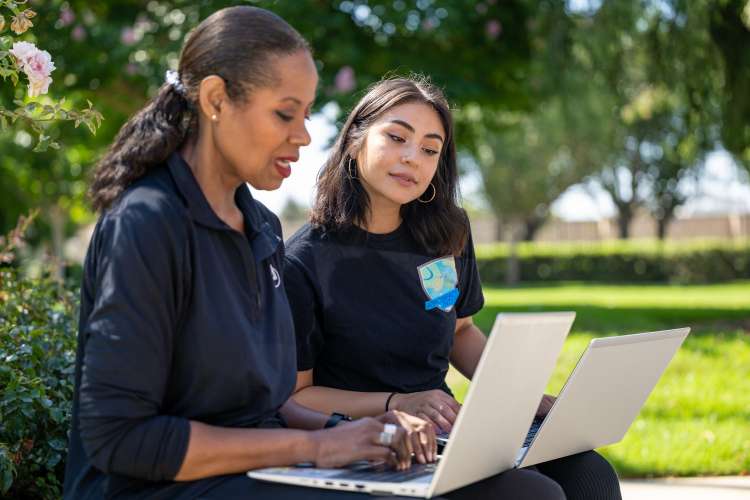Now, during the most exciting time in space, the needs of this ever-growing industry are becoming increasingly more complex. Ensuring its promising future requires broadening the aperture for talent and leadership that will benefit the nation’s space industry.
A more inclusive workforce strengthens innovation and resilience, enabling the advancements of new technical breakthroughs and novel approaches by expanding access to opportunities that contribute to creating an exciting future of possibilities for space. The Aerospace Corporation is proud to be a part of Space Workforce 2030 (SWF2030), a shared mission undertaken by leading companies across the nation’s space sector committed to creating opportunities and new pathways that will INSPIRE, PREPARE and EMPLOY the workforce of the future.
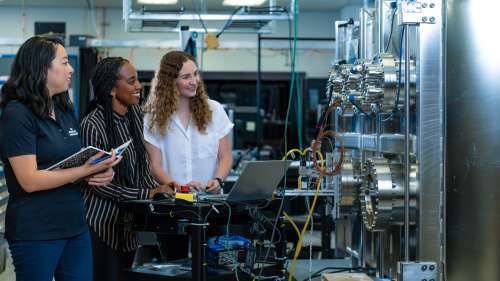
The consortium is taking collective action to strengthen the technical workforce and senior technical leadership across the industry. Additionally, SWF2030 works with universities to increase the number of aerospace engineering graduates and seeks to inspire K-12 students to study STEM fields, helping to build a robust pipeline for the future space workforce.
Laying the Foundation
Established in 2022, the coalition is leading first-of-its-kind initiatives aimed at expanding the talent pool and pipeline for the space industry by the year 2030. The consortium seeks to create a lasting impact within this decade and has focused efforts on uniting its members to pursue the exciting opportunities that await in space.
“I think one of the most important progresses is transparency,” said Via Van Liew, Principal Director at Aerospace. “Working with the SWF2030 companies, to be able to collect their data, aggregate it and report it out annually… Collectively, we have been doing a lot of great work.”
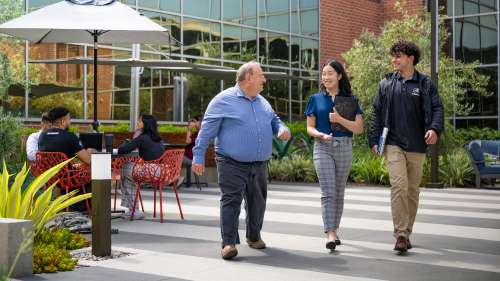
Thus far, these efforts include the standup of the National Space Intern (NSI) program, outreach and engagement with community partners and publicly sharing the aggregate workforce data to inform developing best practices and providing accountability on the progress made.
"The NSI program aims to foster inclusive pathways, providing preparation, development and mentorship to students from different backgrounds,” said Angela Couture, Human Resources Director at Aerospace. “Collectively, our companies will build a robust student pipeline by providing experiential learning, exposure, and experience that ensures a thriving workforce for our nation’s space industry.”
Excellence Through Action
To organize its collective efforts, SWF2030 established three pillars known as the Centers of Excellence (COE): EMPLOY, PREPARE and INSPIRE. These COEs align SWF2030’s goals into actionable plans and the progress they have achieved over the first year serves as a solid foundation to build upon for this ongoing effort.
The EMPLOY group focuses on gathering insight, sharing best practices and creating action based on this information. From 2021 to 2022, data gathered through EMPLOY shows meaningful improvements across categories. The data also shed light on areas that proved more challenging.
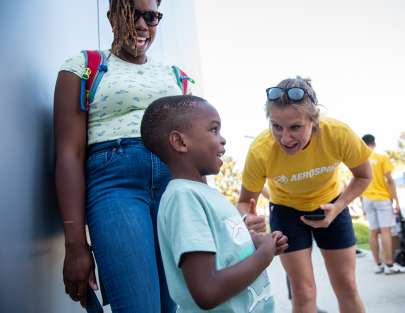
The PREPARE group focuses on expanding the pool and pipeline of vibrant talent in the space workforce. PREPARE established the National Space Intern Program, which received 994 applicants in its inaugural year as of April 2023. Its second cycle has launched as of September 2023.
The INSPIRE group focuses on sparking excitement for space, using partnership programs to reach more than 5 million students in kindergarten through 12th grade each year. INSPIRE informs children as young as 5 years old about the possibilities a space career can offer and partners with organizations, such as Girl Scouts in 2023, to engage with communities of young women and people of color.
Building the Future
Creating a thriving space workforce takes extraordinary collaboration and a commitment to building innovation and resilience, and SWF2030 has established a strong foundation to build from. While there is still more work to be done, SWF2030 continues to explore opportunities to augment and expand its efforts, through partnerships and new programs, as well as implementing the best practices shaped through collaboration.
“Building the U.S. space industry’s workforce of the future means constructing a pipeline of national STEM talent that stretches all the way back to elementary school. Some of the most exciting, dynamic and challenging jobs of the coming decades will deal with space, and we want to get today’s kids excited to be a part of that,” said Alison Bauerlein, Principal Director of Corporate Communications at Aerospace. “Initiatives like the National Space Day we’re holding in March of 2024 are created for elementary aged children who need that extra measure of inspiration.”
In September, the National Space Intern program launched a new registration period for the 2024 internship cycle, and applicant interest has been high. Looking ahead to 2024, SWF2030 plans to host National Space Day—in partnership with NASA—to bring exciting space-related content into classrooms and connect with fourth and fifth graders through watch parties across the country to ignite their interest in space careers.
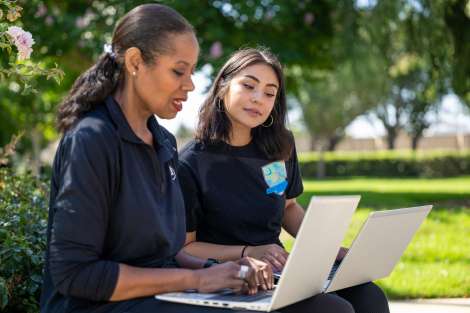
As SWF 2030 continues to build its COE’s, it aims to bring the program’s shared vision to life. A more dynamic and robust space workforce brings new opportunities and pathways for vibrant talent, providing all players a better foundation to execute cutting edge solutions.
“It’s no secret that we are at an exciting time in the space industry, with rapid growth and innovation across all sectors,” said Van Liew . “We recognize that different ways of thinking, unique perspectives and backgrounds are creating opportunities for those voices to be heard and it’s essential to innovation.”
